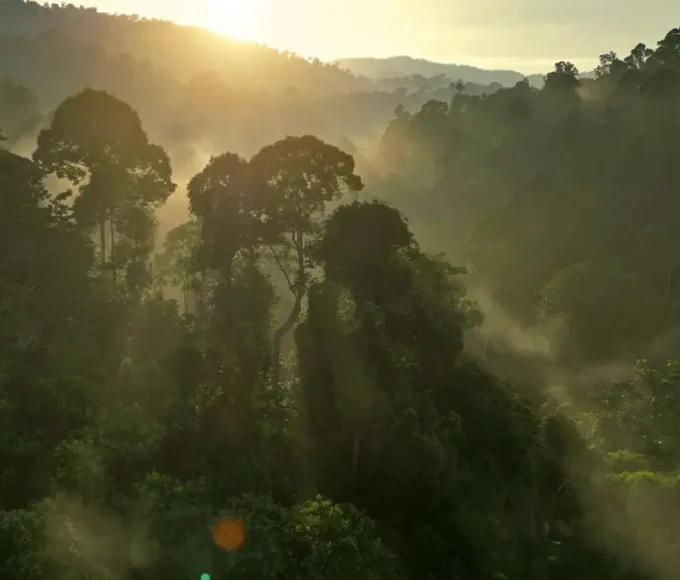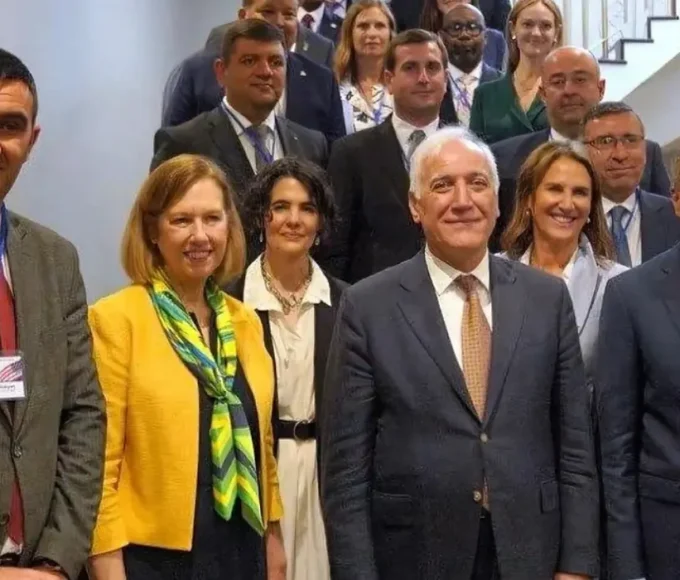Joe Biden He had planned to visit the strategic island of Papua New Guinea (PNG) this week. It was to be the first visit by an active US president to a Pacific island nation. The trip was eventually canceled due to problems with the US Congress over the debt ceiling, but that does not diminish the importance of the importance of the maritime security and surveillance pact that Washington will sign with Papua. -New Guinea, which involves, among other things, the transfer of 45 million dollars for security cooperation to strengthen the national armed forces.
The location of Papua New Guinea to the north of Australia is Strategic for China and the United States. This territory disputed by European powers at the end of the 19th century, in the midst of the imperialist race, was the scene of bloody battles during the Second World War. For American strategists, the geographical position of Papua makes it a centerpiece of the so-called “chain of islands”, which unites it with Tokyo, Saipan (the largest island of the American insular Commonwealth of the Northern Mariana Islands) and Guam. This chain constitutes the so-called great spearhead of the United States against China.
The draft agreement provides for an increase in civilian and military personnel in the country. It also grants legal immunity to US officials and US contractors to move freely within its territory and territorial waters. The local government denied that the Pentagon was going to open a military base, but the message is clear. The United States wants to integrate Papua New Guinea into its defensive shield. Over the past few decades, the United States has deployed what journalist Jean Pilgrim has defined as the “perfect vise” with some 400 military bases around China in a strategy to contain the Asian giant.
PNG Prime Minister James Marape has said the deal responds to the need to protect the country, but sectors such as unions and university students have protested because they believe the deal with Washington could irritate the China and leave the country anchored in the North American orbit, losing its neutrality. And they are not wrong. Beijing does not seem comfortable with the pact and in the last hours, the spokesman of the Ministry of Foreign Affairs, Wang Wenbin“He warned that Beijing opposes any” geopolitical game in the region of the Pacific islands in a clear warning to the Biden administration’s decision to enlist support from Papua New Guinea.
In recent months, Vice President Kamala Harris has visited PNG in recognition of the scant diplomatic attention the United States has given to Pacific island nations. But China’s expansionism and consolidation of this region as a key theater of a new Cold War between Beijing and Washington has revitalized interest in any territory that can serve to stop the Chinese advance in the region, in the Indo-Pacific Strategy. the United States.
After the vacuum left by Washington for decades in this area, China has extended its diplomacy through greater aid, development and security cooperation, which has drawn suspicion from allies New Zealand and Australia. Americans. Unrest in Washington grew after the security pact signed last year between What’s Happening in the Solomon Islands?, which could allow the presence of Chinese warships and security forces. In response, the United States increased its focus on the Pacific with the opening of embassies in the Solomon Islands and Tonga.
The security deal with PNG marks a new chapter in the growing tension between the United States and China in the region. New Zealand Prime Minister Chris Hipkins assured on Monday that this pact “will not militarize the Indo-Pacific region”. “New Zealand does not support the militarization of the Pacific. That said, a military presence does not necessarily mean militarization,” the New Zealand prime minister said. UNSW professor David Kilcullen told Reuters that “a conflict between the United States and China could develop throughout the Pacific, including Melanesia and the Polynesian islands, not just in the Strait of Taiwan and the South China Sea, which puts Papua New Guinea and the Solomon Islands in the spotlight.”
Currently, Australia has access to the Lombrum Naval Base on Manus Island belonging to Papua New Guinea through a Memorandum of Understanding signed between the two countries in 2019, which aims to rebuild the military facility and to increase interoperability between the defense forces of the two neighboring countries.
Papua New Guinea is hosting five presidents and ten prime ministers on Monday, including Indian Prime Minister Narendra Modi, who will be in the country to attend the India-Pacific Forum in Port Moresby. In the coming days, Australia will host the Quad Partners Meeting, a military security forum encouraged years ago by the United States which hosts India, Japan and Australia. The latter country is also part of AUKUS, a defensive alliance promoted by Washington and London to counter Beijing’s military and diplomatic influence.
This article is originally published on www.nouvelles-du-monde.com









